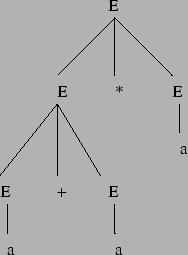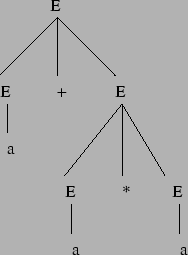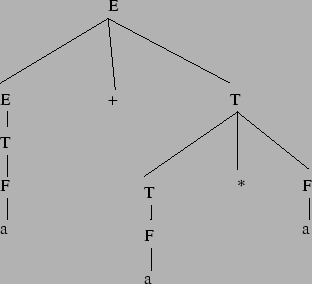We say that a grammar ![]() is ambiguous if there is a word
is ambiguous if there is a word ![]() for which there is more than one parse tree. This is usually a
bad thing because it entails that there is more than one way to
interpret a word (i.e. it leads to semantical ambiguity).
for which there is more than one parse tree. This is usually a
bad thing because it entails that there is more than one way to
interpret a word (i.e. it leads to semantical ambiguity).
As an example consider the following alternative grammar for
arithmetical expressions:
We define
![]() where
where
![]() is given by:
is given by:


Each parse tree correspond to a different way to read the expression,
i.e. the first one corresponds to ![]() and the second one to
and the second one to
![]() . Depending on which one is chosen an expression like
. Depending on which one is chosen an expression like ![]() may evaluate to
may evaluate to ![]() or to
or to ![]() . Informally, we agree that
. Informally, we agree that ![]() binds
more than
binds
more than ![]() and hence the 2nd reading is the intended one.
and hence the 2nd reading is the intended one.
This is actually achieved by the first grammar which only allows the 2nd reading:
